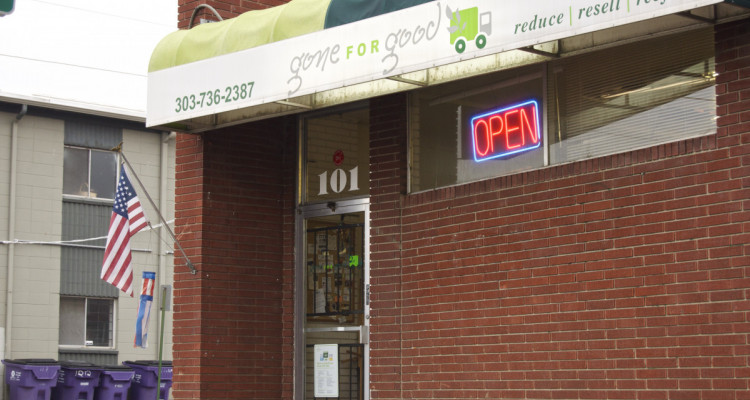Estate Guidance with a Personal Touch and Professional Care

Losing a loved one brings not only deep grief but also the weighty responsibility of handling their estate. Navigating this task with a thoughtful approach can be a meaningful way to honor their legacy. A respectful and organized method helps ensure their wishes are followed and their memory remains intact. Taking care of essential details and encouraging open family discussions can make a challenging process more manageable.
Efficiently Organize and Secure Important Documents
One of the first steps in managing a deceased loved one’s estate is to organize their important documents. These might include medical records, financial statements, and legal papers. To ensure these documents are easily accessible and secure, consider converting them into PDFs. You can consider this mobile scanning app to quickly capture documents using your device’s camera. Look for features like password protection and file compression to keep sensitive information safe and save storage space. This method not only streamlines the estate settlement process but also provides peace of mind.
Navigating the Legal Landscape of Estate Management
Navigating the legal aspects of estate management requires attention to detail and a solid grasp of legal responsibilities. The probate process, which validates a will, ensures assets are distributed as intended. Executors play a key role in protecting estate assets, settling outstanding debts, and overseeing inheritances in line with the deceased’s wishes. Handling these important tasks with care allows for an orderly transition of the estate and respects the intentions of the individual.
Prioritize Eco-Friendly Disposal of a Loved One’s Belongings
Choosing eco-friendly disposal methods when handling a loved one’s belongings can lessen environmental impact. Donating or recycling items reduces waste and helps curb greenhouse gas emissions. Reusing household items or vehicles prevents significant pollution that would otherwise come from landfill disposal. Prioritizing sustainable options honors your loved one’s memory while fostering a healthier environment.
The Critical Role of Managing Digital Legacies
In today’s digital age, managing a deceased loved one’s online presence is as important as handling their physical belongings. Unattended digital accounts, such as social media profiles and online banking, can pose significant risks, including identity theft. By proactively addressing these digital assets, you safeguard personal data and preserve cherished memories. Creating a comprehensive plan for digital estate management ensures that your loved one’s online identity is handled according to their wishes, preventing potential legal and ethical dilemmas.
Enhancing Market Value Through Home Assessment and Repairs
When dealing with a deceased loved one’s property, it’s crucial to evaluate the home’s condition to identify any necessary repairs or enhancements that could boost its market value. Start by inspecting both the interior and exterior for significant issues like a leaking roof or outdated electrical systems. Addressing these problems not only meets building codes but also makes the property more attractive to potential buyers. Collaborate with a real estate agent to negotiate with potential buyers or sellers, ensuring that any required repairs are completed by reputable contractors.
Fostering Open Communication During Emotional Times
Sorting through a loved one’s belongings is deeply emotional, and open communication helps maintain understanding among family members. When everyone feels acknowledged, misunderstandings and conflicts tend to decrease. Practicing empathy and truly listening to one another creates a space where feelings can be expressed freely. Respectful dialogue and healthy boundaries make the process more supportive and balanced for everyone involved.
The Crucial Role of Locating Wills and Documents
Locating and examining any wills or documents that express your loved one’s wishes regarding their possessions is essential. These documents serve as a roadmap, guiding you through the distribution of assets and ensuring that the deceased’s intentions are honored. Without a will, the estate may be subject to state intestacy laws, which might not align with the deceased’s preferences. Reviewing these documents can also help identify any outstanding debts or liabilities that need to be settled before distributing the assets.
Handling a loved one’s estate calls for both compassion and attention to detail, as it carries the weight of honoring their legacy. Each decision made with care becomes part of a meaningful tribute, reflecting the life they led. This process, though difficult, often brings moments of peace, giving space to celebrate memories with a renewed sense of closeness. As you navigate these responsibilities, a gentle sense of closure can emerge, allowing loved ones to move forward with grace.
Discover the joy of decluttering with a purpose at Gone For Good Store – where your unwanted items find new homes and you contribute to a greener planet. Visit us today for eco-friendly cleanouts and unbeatable thrift store finds!
Related Posts
 Estate Guidance with a Personal Touch and Professional Care
Estate Guidance with a Personal Touch and Professional Care
Losing a loved one brings not only deep grief but also the weighty responsibility of handling their estate. Navigating this task with a thoughtful approach can be a meaningful way to honor their legacy. A respectful and organized method helps ensure their wishes are followed and their memory remains intact.
Read More Basement Guides
Basement Guides
Although it is one of the most neglected parts, the basement, being the foundation of your home, is the most important.
Read More Gone for Good in Voyage Magazine
Gone for Good in Voyage Magazine
Voyage Magazine featured Gone for Good in their Most Inspiring Stories column this issue. This article is about the origins of the business and how it became what it is today.
Read More Gone for Good launches a new franchise in Aurora, CO
Gone for Good launches a new franchise in Aurora, CO
Gone For Good Aurora, an outlet of Gone For Good, Inc., announced the release of their brand new website earlier this month on July 1, 2019.
Read More